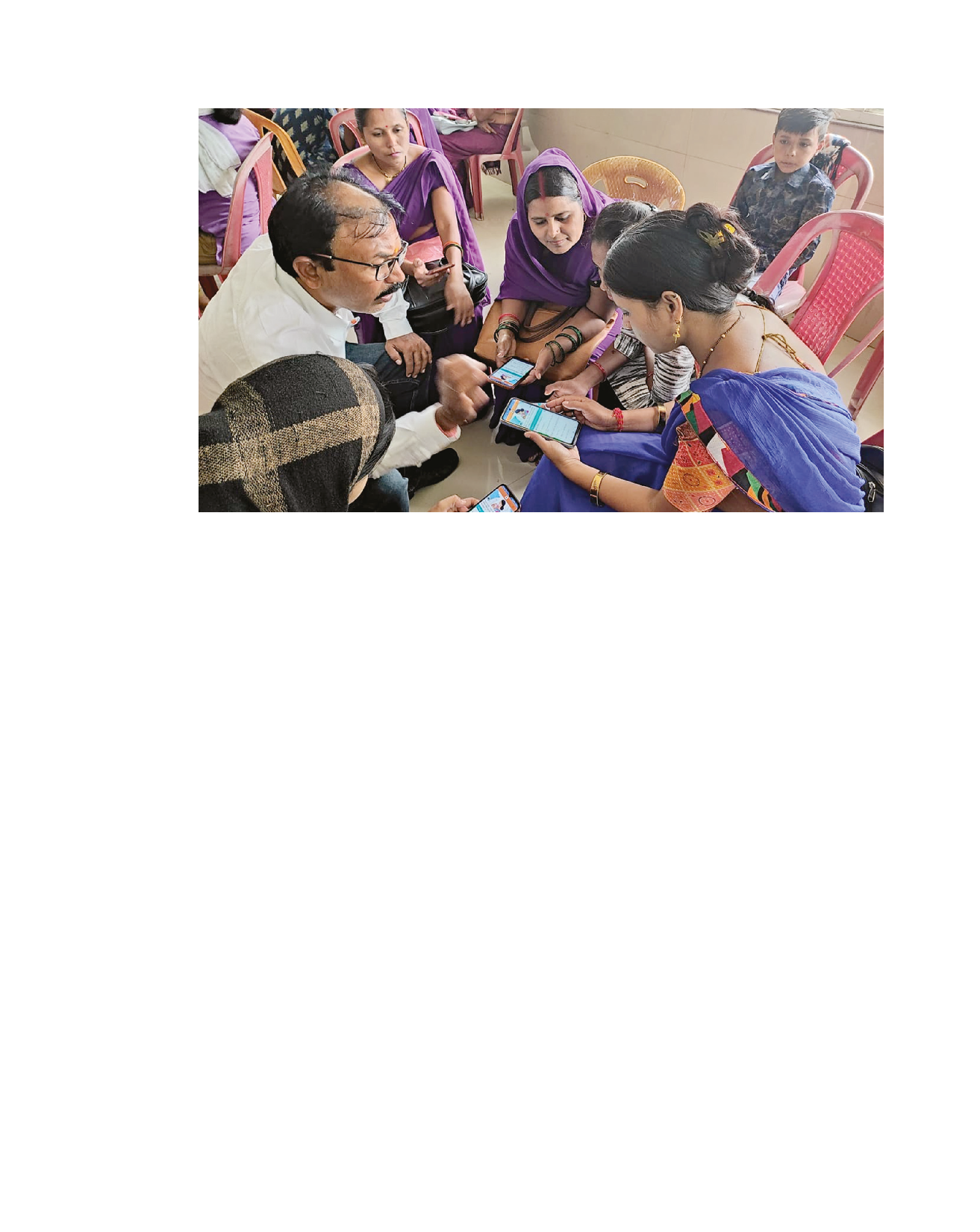
Health
121
Bridging treatment gaps in perinatal depression by training
ASHA workers through digital modules
Following pages (122–123):
Modelling healthy feeding practices and responsive caregiving at home through
trained counsellors
public health trials, thus respected for their
evidence, and scalable across similar contexts.
‘Our most important collaboration is with
the community-based providers. rough
our ‘task-sharing’ approach, we aim to
empower them in providing frontline mental
healthcare. is approach is now becoming
recognized as an approach to increase the
access to quality mental healthcare across the
whole world,’ explains Prof. Patel.
Sangath’s ‘Mann Kaksha’ model co-
developed with the Madhya Pradesh health
system was scaled to the whole state by the
state government. Its work is represented
in the National Mental Health Policy of
India and the National Health Systems
Resource Centre guidelines. Its innovative
interventions are being adopted and adapted
in several countries, including Nepal, Canada,
Sri Lanka, Uganda, the UK and the USA.
Sangath reaches out to build the capacity
of all stakeholders – healthcare professionals,
lay counsellors, educators, mental health
professionals, youth advocates, and caregivers.
As a testament to Sangath’s efforts, frontline
health workers have reported personal
transformation aſter being trained on mental
health, not to mention improvement in the health
of community members under their watch.
HCLTech Grant Project Title:
EMPOWER:
Building India’s Perinatal Mental Health
Workforce
Beneficiaries:
750 ASHA workers, 750
anganwadi workers, 300 community health
officers, 90 district health officials, 71345
pregnant women, 25000 parents of children
aged 0-3 years
Location:
750 villages in 3 districts of
Madhya Pradesh